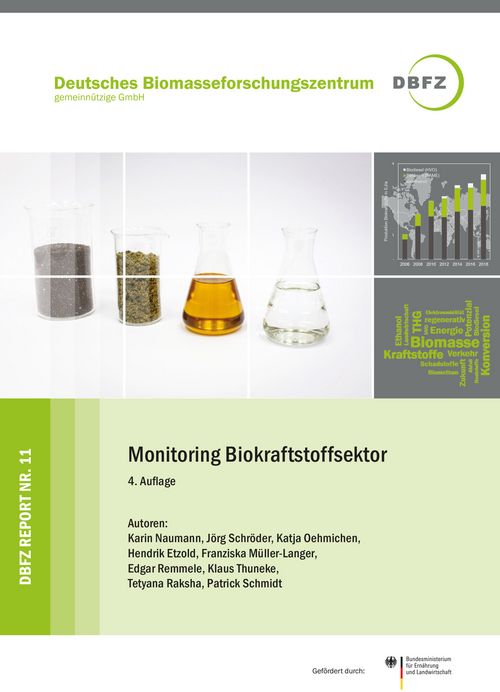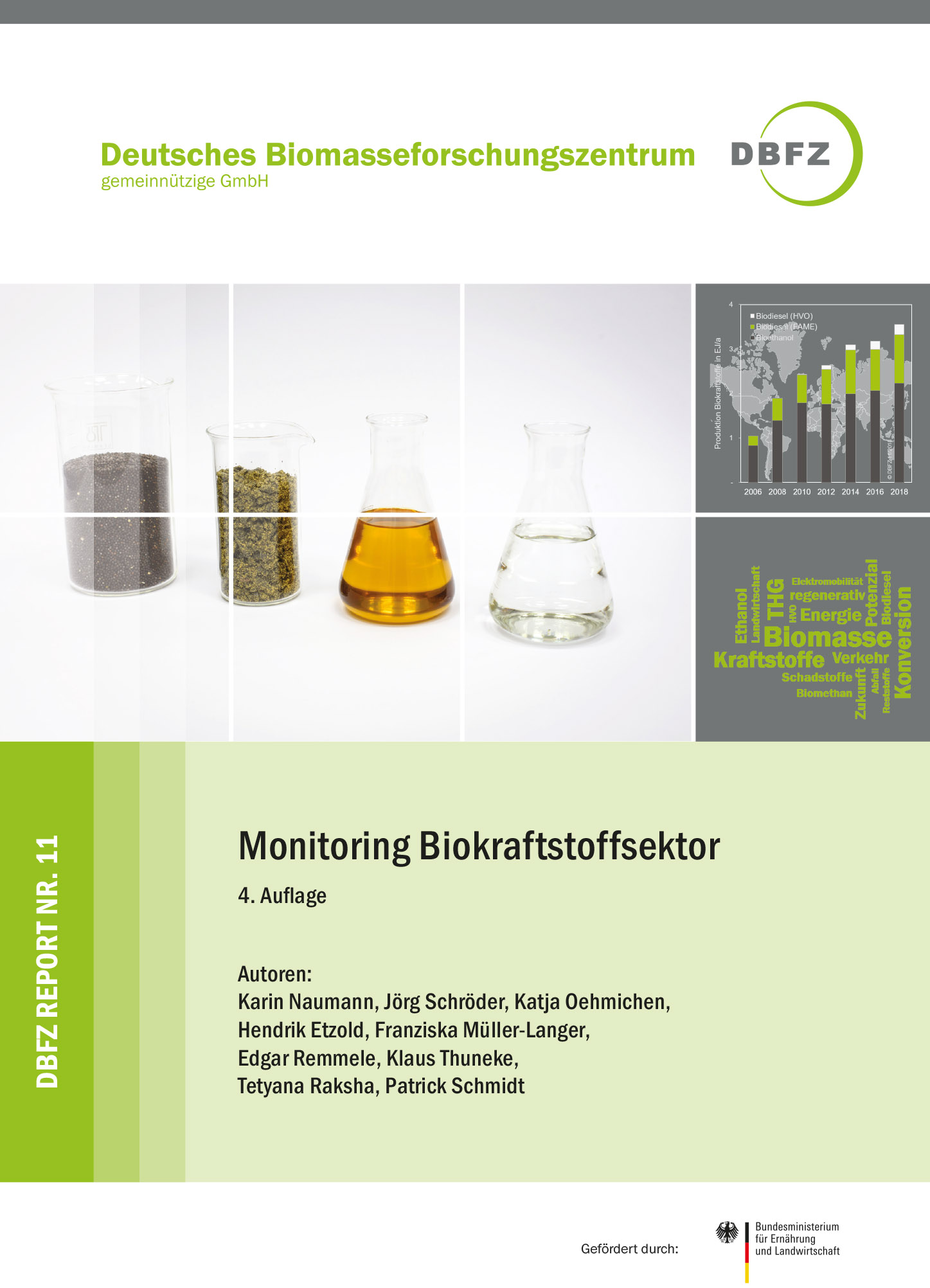Monitoring biofuels sector: DBFZ publishes comprehensive reference work
The transport sector faces the challenge of making mobility sustainable and climate-friendly. With a view to existing and foreseeable volume availability and competitiveness, biofuels will continue to play a decisive role. The fourth revised edition of the DBFZ Report No. 11 on "Monitoring Biofuels Sector" provides an overview of current and expected national and international developments in the field of renewable fuels.
The latest special report of the Intergovernmental Panel on Climate Change (IPCC) calls for decisive action for a paradigm shift, especially in the energy sector, transport and agriculture, in order to achieve the agreed Paris climate targets (i.e. reduction of greenhouse gases (GHG) by at least 80 to 95 % by 2050 compared to 2010). One key to this is the drastic reduction of energy consumption while at the same time massively increasing the share of sustainable renewable energy sources. This will require a technological revolution in many areas over the next few years.
In particular, the transport sector faces enormous challenges to make mobility sustainable and climate-friendly. In Germany, final energy consumption in the transport sector has increased by 5% and greenhouse gas emissions (CO2 equivalents) by 8% since 2010, even though about 4% of greenhouse gases have been avoided by using sustainable biofuels. Achieving the climate protection target for transport by 2030 requires not only a significant reduction in final energy consumption, but also an increase in the share of all renewable energy sources. Biofuels will continue to play a decisive role in view of the existing and foreseeable volume availability of renewable energies and their competitiveness.
In this context, the fourth revised and expanded edition of DBFZ Report No. 11 on the monitoring of the biofuel sector provides an overview of current and expected national and international developments in the field of renewable fuels. Political framework, raw materials, production, distribution, use as well as economic and ecological aspects are addressed comprehensively. Additional aspects such as the use of biofuels and associated emissions as well as the status and prospects of power-based Power-to-X fuels were supplemented together with scientists from the Technology and Support Center (TFZ) and Ludwig-Bölkow-Systemtechnik GmbH (LBST).
The DBFZ Report No. 11 "Monitoring Biofuels Sector" is available as a German language PDF file under the following link and can be obtained as a free print version:www.dbfz.de/pressemediathek/publikationsreihen-des-dbfz/dbfz-reports/dbfz-report-nr-11/
Smart Bioenergy – innovations for a sustainable future
The DBFZ works as a central and independent thinker in the field of energy and material use of biomass on the question of how the limited available biomass resources can contribute to the existing and future energy system with sustainability and high efficiency. As part of the research the DBFZ identifies, develops, accompanies, evaluates and demonstrates the most promising fields of application for bioenergy and the especially positively outstanding examples together with partners from research, industry and public. With the scientific work of the DBFZ, the knowledge of the possibilities and limitations of energy and integrated material use of renewable raw materials in a biobased economy as a whole should be expanded and the outstanding position of the industrial location Germany in this sector permanently secured – www.dbfz.de/en.


